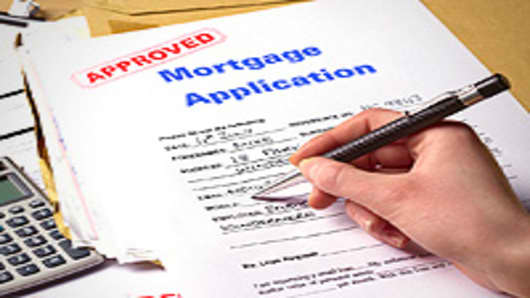Homeownership has long been associated with investment savvy.
Tax breaks, equity growth and the sanctity of the American dream — the real estate community has made a pretty compelling case over the years for the merits of purchasing property versus throwing your money away on rent.
But as the housing market redefines itself in the wake of the subprime mortgage crisis and the ensuing industry recession, a number of economists who follow the industry suggest the benefit of buying no longer applies. Others say it never did.
Yale economist Robert J. Shiller, whose book “Irrational Exuberance” accurately predicted the stock market collapse in 2000, notes that U.S. housing prices posted roughly a zero percent gain between 1890 and 1990, after adjusting for inflation.
“That’s the remarkable thing that most people don’t realize,” he says. “This is not a financial investment. It’s an investment that provides you services and you have to answer for yourself how you value that.”
The biggest dividend of real estate, says Shiller, is the lifestyle it affords. Some are willing to pay a premium for kid-friendly neighborhoods, quiet streets, a historic home or a condo close to work.
But taking the plunge today is a bigger financial gamble than it once was.
“If you’re doing it more with investment motives, then I think you have to be careful,” says Shiller, who co-founded the Standard & Poor’s Case-Shiller Index for housing prices. “I wouldn’t be overly influenced by the idea that home prices are low, and they might suddenly take off — that’s what’s coloring some people’s thinking now. It might be more accurate to wait another five years.”
Or not at all.
Research by Jack C. Francis, a former Federal Reserve economist and professor at Baruch College at the City University of New York, reveals that residential real estate has consistently failed to measure up with other asset classes over the last 30 years.
From 1978 to 2008, he found, the S&P 500 returned an average of 11 percent a year, while U.S. small-cap stocks produced an average return of roughly 13 percent. Single-family homes posted less than a 6 percent gain.
“For generations, parents and grandparents have been telling us that the way to get ahead was to buy a house and keep making payments with a fixed interest rate and after 20 or 30 years it would be way up in value and that was your nest egg in old age,” says Francis. “You could either live in it rent free or sell it and use the proceeds to rent an apartment.”
That was good advice until 2006 when home prices collapsed, he says, and it “may become good advice 10 years from now, but right now it’s not.”
Even in the best of economies, though, some say the advantages of owning residential real estate only apply to a select demographic.
Take the mortgage interest deduction.
“To even claim that deduction you have to give up the standard deduction and it’s not worth it dollar for dollar unless you are already itemizing [to claim charitable deductions or write off large medical expenses, for example],” says Russell James, an associate professor at Texas Tech University, who co-authored a study comparing buy versus rent scenarios. “By and large, most people with lower incomes are not itemizing, and even when they do take the deduction it’s worth less to them because they’re in a lower income tax rate.”
If you’re in the 35-percent tax bracket, he explains, then a $1,000 deduction is worth $350 to you. That same deduction is worth just $100 to someone in the 10 percent bracket. “The advantages of homeownership are extremely skewed to wealthy homeowners,” says James.
Interestingly, the vast majority of rent-vs.-buy calculators available online never consider whether you’re going to use the deduction.
Hidden costs also impact your long-term return on investment, says James.
Moving from an apartment to a single family home often means commuting from the suburbs, which requires you to purchase a car, pay insurance and fill it with increasingly pricey fuel rather than using more affordable (and planet-friendly) public transportation.
More square footage also translates into higher utility costs, bigger furniture expenses and more maintenance expenses when the heat pump dies or the sidewalk needs repair.
That, too, effects lower-income homeowners disproportionately, James found.
“We looked at the government’s consumer expenditure survey, and it turns out that housing costs are much higher for people who are at the lower end of the income spectrum because of the kind of houses they tend to buy, which are typically older homes that are more expensive in terms of future repairs and less energy efficient,” he says. “They are more likely to be in a situation where their mortgage payment takes care of a smaller percentage of their overall housing costs.”
Conversely, higher-income buyers are more likely to benefit from price appreciation, since homes in better neighborhoods tend to outperform the overall market. (See how the top suburban markets have performed.)
Others, meanwhile, suggest homeownership renders buyers (regardless of socioeconomic status) more vulnerable to job market downturns, since it ties them to a single market, and that has certainly been a factor in the past three years.
Despite all the naysayers, however, securing a mortgage today might still make sense for you as interest ratescontinue to hover near historic lows, especially if you plan to stay put long term, says Shiller. A popular affordability index is also near its November 2010 record low.
It all depends on your goals, income and credit history—and thus your ability to secure the lowest available rates.
Francis adds that many homebuyers may be willing to accept a more modest long-term return in exchange for the inflation hedge that physical real estate provides. (By owning your own home with a fixed rate loan, you eliminate any vulnerability to rent increases and hold the inflation line on one of your biggest personal expenditures.)
To students who come to him for guidance on whether to buy or rent in the near term, however, Francis has one word of advice: wait.
“I keep telling them this is not the time to buy,” he says. “Some people think the subprime mortgage crisis is over, but it’s not. There are going to be more bankruptcies this year than last so home prices are going to keep falling, and if they buy now they’re going to be under water on their loan in a year or two. It’s a simple matter of supply and demand.”



